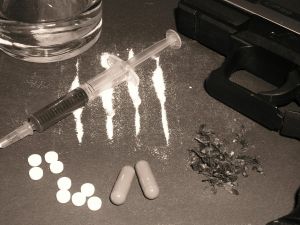Federal case in the Eastern District of Texas Sherman/Plano Division? Sherman & Plano, TX Criminal Defense Lawyer (Part 1)
 Federal prosecutors use the power of “conspiracy” prosecutions to obtain convictions all over the United States without the burden of proving that an individual committed the actual, substantive crime. Many people finding themselves charged in kilogram or multi-kilogram conspiracies although they may have simply been innocent or a user (innocent of conspiring to distribute), aggravated user (selling enough to support a habit), street dealer or trafficker. To understand conspiracy law, the best place to start with is the Fifth Circuit Court of Appeals pattern jury charge. If you go to trial in the Eastern District of Texas federal court on a drug conspiracy indictment, the jury will be given the following instruction:
Federal prosecutors use the power of “conspiracy” prosecutions to obtain convictions all over the United States without the burden of proving that an individual committed the actual, substantive crime. Many people finding themselves charged in kilogram or multi-kilogram conspiracies although they may have simply been innocent or a user (innocent of conspiring to distribute), aggravated user (selling enough to support a habit), street dealer or trafficker. To understand conspiracy law, the best place to start with is the Fifth Circuit Court of Appeals pattern jury charge. If you go to trial in the Eastern District of Texas federal court on a drug conspiracy indictment, the jury will be given the following instruction:
Title 21, United States Code, Section 846, makes it a crime for anyone to conspire with someone else to commit a violation of certain controlled substances laws of the United States. In this case, the defendant is charged with conspiring to (distribute controlled substance(s), namely ____ or possess with the intent to distribute controlled substance(s), namely ____.)
A “conspiracy” is an agreement between two or more persons to join together to accomplish some unlawful purpose. It is a kind of “partnership in crime” in which each member becomes the agent of every other member.
For you to find the defendant guilty of this crime, you must be convinced that the government has proved each of the following beyond a reasonable doubt:
First: That two or more persons, directly or indirectly, reached an agreement to (distribute controlled substance(s), namely ____ or possess with the intent to distribute controlled substance(s), namely ____.)
Second: That the defendant knew of the unlawful purpose of the agreement;
Third: That the defendant joined in the agreement willfully, that is, with the intent to further its unlawful purpose; and Fourth: That the overall scope of the conspiracy involved at least [___ amount] of [substance].
One may become a member of a conspiracy without knowing all the details of the unlawful scheme or the identities of all the other alleged conspirators. If a defendant understands the unlawful nature of a plan or scheme and knowingly and intentionally joins in that plan or scheme on one occasion, that is sufficient to convict him for conspiracy even though the defendant had not participated before and even though the defendant played only a minor part.
The government need not prove that the alleged conspirators entered into any formal agreement, nor that they directly stated between themselves all the details of the scheme. Similarly, the government need not prove that all of the details of the scheme alleged in the indictment were actually agreed upon or carried out. Nor must it prove that all of the persons alleged to have been members of the conspiracy were such, or that the alleged conspirators actually succeeded in accomplishing their unlawful objectives.
Mere presence at the scene of an event, even with knowledge that a crime is being committed, or the mere fact that certain persons may have associated with each other and may have assembled together and discussed common aims and interests, does not necessarily establish proof of the existence of a conspiracy. Also, a person who has no knowledge of a conspiracy, but who happens to act in a way which advances some purpose of a conspiracy, does not thereby become a conspirator.
Notice, drug conspiracy law does not require that you actually ever possess or deliver drugs. It does require 1) that you agree to distribute or possess with the intent to distribute drugs, 2) that you knew such was illegal, 3) that you joined the agreement with intent to carry it out, and 4) that one or more persons took an overt act in furtherance of the agreement (to carry out the crime).
 Sherman & Plano, TX Criminal Defense Lawyer Blog
Sherman & Plano, TX Criminal Defense Lawyer Blog

